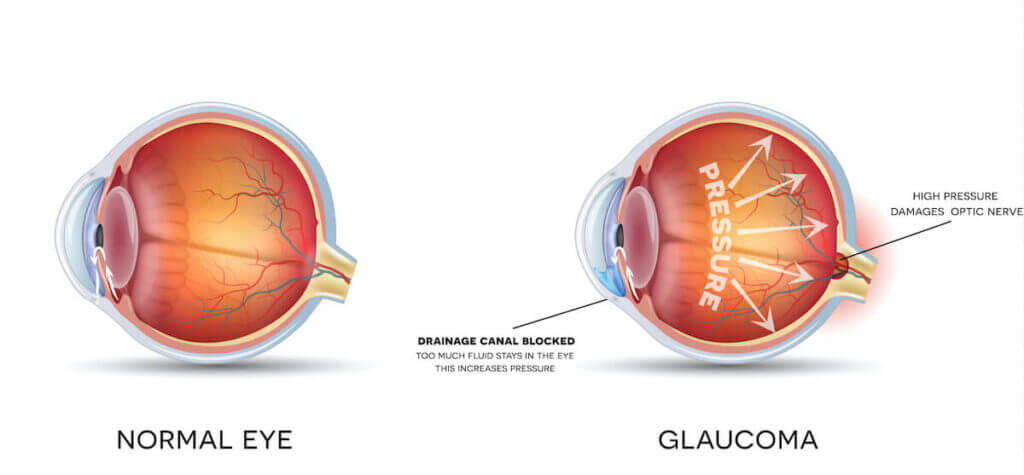Glaucoma is a very serious condition of the eye. Without treatment, it can result in permanent vision loss. Glaucoma does not always show signs, so you could have it without knowing. Annual eye exams are the best way to avoid and/or treat glaucoma and many other eye conditions.
What Is Glaucoma?
Glaucoma occurs when there is increased pressure in your eyes. Over time, the increase in pressure can cause permanent and irreversible damage to your optic nerve. When the damage occurs, it can cause the loss of your peripheral (side vision). If left untreated, it can result in blindness.

What Are the Early Symptoms Of Glaucoma?
There are two types of glaucoma. Open-angle glaucoma is the most common. It occurs when the eye doesn’t drain fluid the way that it should, resulting in a build-up of pressure. This type of glaucoma shows no early symptoms. It isn’t until permanent vision loss has occurred that you will experience any symptoms. This is why annual eye exams are crucial.
The second type of glaucoma is closed-angle glaucoma. This type occurs when the iris blocks up the drainage angle, causing the pressure in your eyes to increase. The symptoms of this type of glaucoma come on suddenly, often right when the pressure in your eye first increases. The symptoms include:
- Sudden severe pain in the eye
- A severe headache
- Nausea
- Vomiting
- Seeing rainbow halos around lights
- Sudden onset of blurry vision
Without immediate treatment, this type of glaucoma can cause blindness.
How Is Glaucoma Diagnosed?
Glaucoma can be detected during your annual eye exam. During a comprehensive eye exam, your eye doctor will check the pressure in your eye. If the pressure is elevated, they will dilate your eye to examine your optic nerve for damage.
To determine the type of glaucoma that you have, our eye doctor will put a contact lens with a mirror on your eye. If the angle between the iris and cornea is blocked and closed, you have closed-angle glaucoma. If it is open and wide, you have open-angle glaucoma.
Our eye doctor may want to take photos of your optic nerve so that they can track the progression of the disease. To gauge your peripheral vision loss, they may order a visual field test.
Is There a Cure for Glaucoma?
While there is no cure for glaucoma, there are treatments that can preserve your vision, which means the sooner you are diagnosed, the more vision can be protected. Eye drops are the most common type of glaucoma treatment, but pills are also an option. All glaucoma eye drops are utilized to either improve the outward flow of fluid or to decrease the amount of fluid produced within the eye. A
Contact Spectrum Eye Physicians Today!
Schedule your appointment online or call us at 408-884-2215. No matter which of our locations you visit, you will receive the latest in eye care technology from friendly eye doctors and staff committed to serving you.
Request Appointment